It started with a patron, a picture and a juicy story.
A patron was looking for photos taken by Providence Journal contributor Frank Warren Marshall (1886-1960) when she came across this photo in Lot 161:

Jerothmul Bowers Barnaby was born on October 27, 1830 in Freetown, Massachusetts to Stephen Barnaby & Lucy Hathaway, who had a total of 14 children. The family descends from James Barnaby, who was at Plymouth as early as 1660. Educated in country schools, Jerothmul became acquainted with the clothing industry at the early age of 16 when employed as a clerk in his brother-in-law’s store. In 1852, he came to Providence and opened his first store at 15 South Main Street. As a successful businessman, he would have been quite a catch and at a party he met Josephine Amelia Reynolds. The stunning blond socialite caught his eye and they married on September 15, 1857. Their first daughter, Mabel was born in 1860, followed by Harriet Alena in 1864. Success of his company lead Jerothmul to expand and in 1869 he opens his largest store yet at the corner of Dorrance & Westminster Streets; this is closely followed by another daughter, Josephine Maude in 1870.
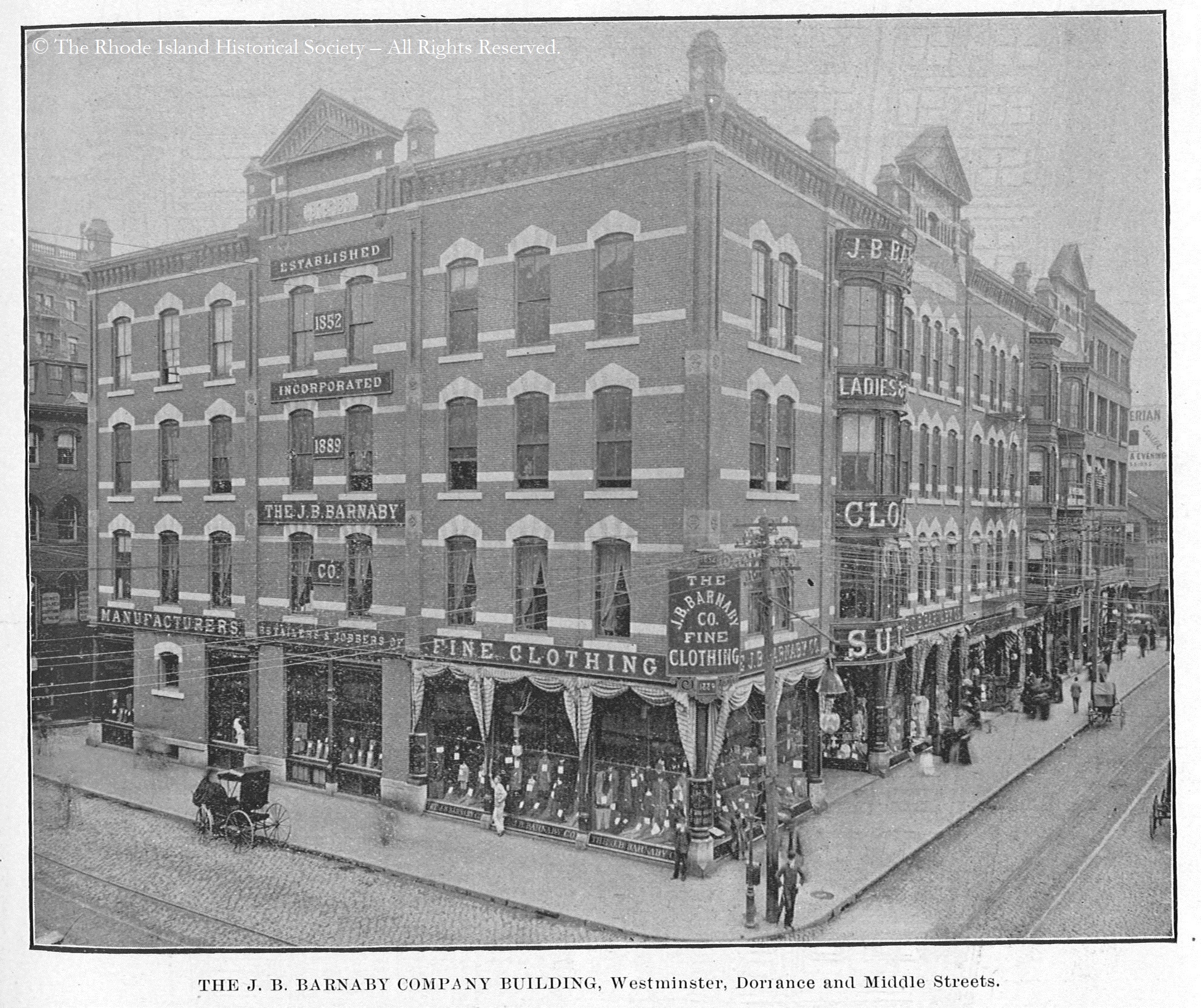

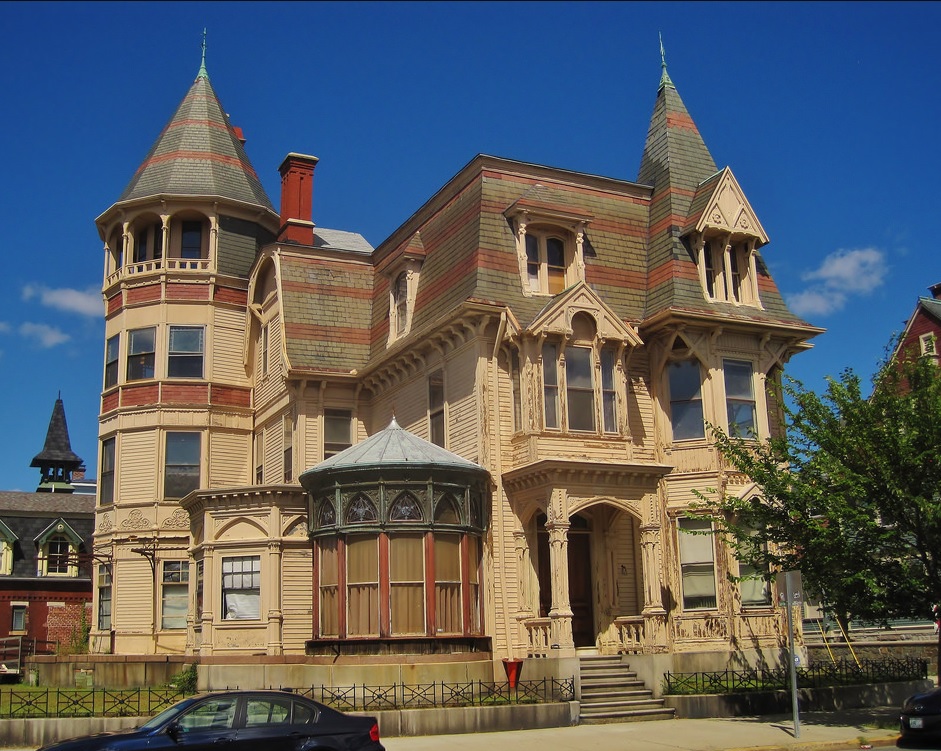
The Providence Journal, December 18, 1884
The Conrad Building at the corner of Westminster & Aborn Streets.
The Death of Jerothmul Bowers Barnaby.
Later, the Boston Globe quoted Dr. T. Thatcher Graves as saying:
“She was a vile woman and she had vile lovers. Once in the Adirondacks he looked through a crack in the icehouse and saw Mrs. Barnaby and the guide, Mr. Bennett, lying drunk on the floor in the sawdust, and with every indication of a previous revolting transaction having taken place.”
After New York, she traveled to California then met up with her friend, Mrs. Florence Worrell in Denver at the home of Mrs. Worrell’s son, Edward. Upon her arrival on April 13, 1891, there was a package waiting for her.
The package had arrived on March 31st, addressed to “Mrs. J. B. Barnaby, care of E.S. Worrell, Jr., 1525 Arapahoe Street, Denver, Colorado.” It was marked “Merchandise Only” and was eight inches long, five inches wide and three inches deep. It was done up in light brown paper, and five 15-cent stamps and two 10-cent stamps, plainly stenciled with the postmark “Boston” on the wrapper. The post office notified the office of Schermerhorn and Worrell Investment Company and an employee of the firm went to retrieve it and it made its way into the hands of Josephine.
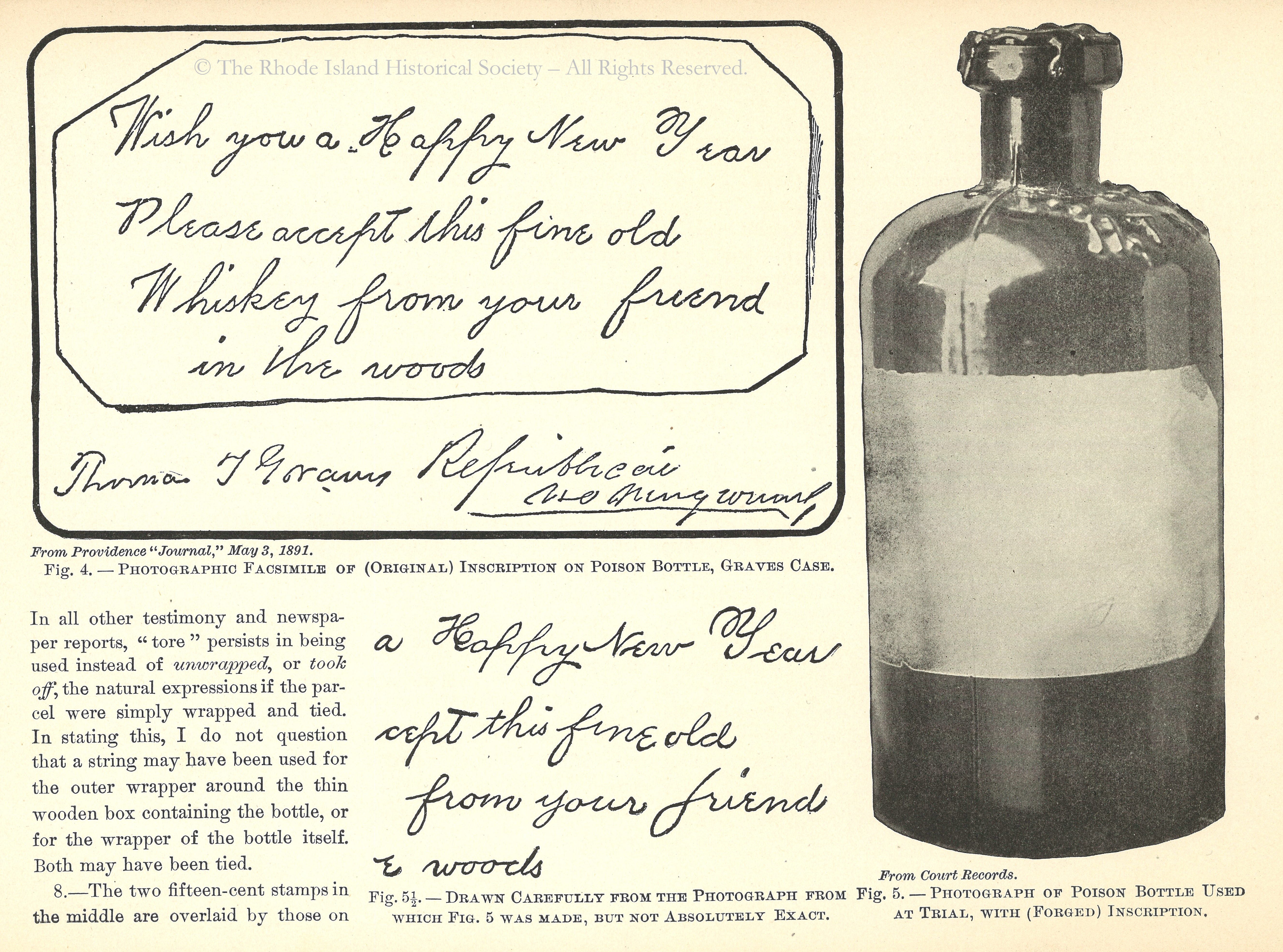
MRS. BARNABY DANGEROUSLY ILL. COME IF YOU WISH TO SEE HER ALIVE.
Josephine died the next day at 2pm.
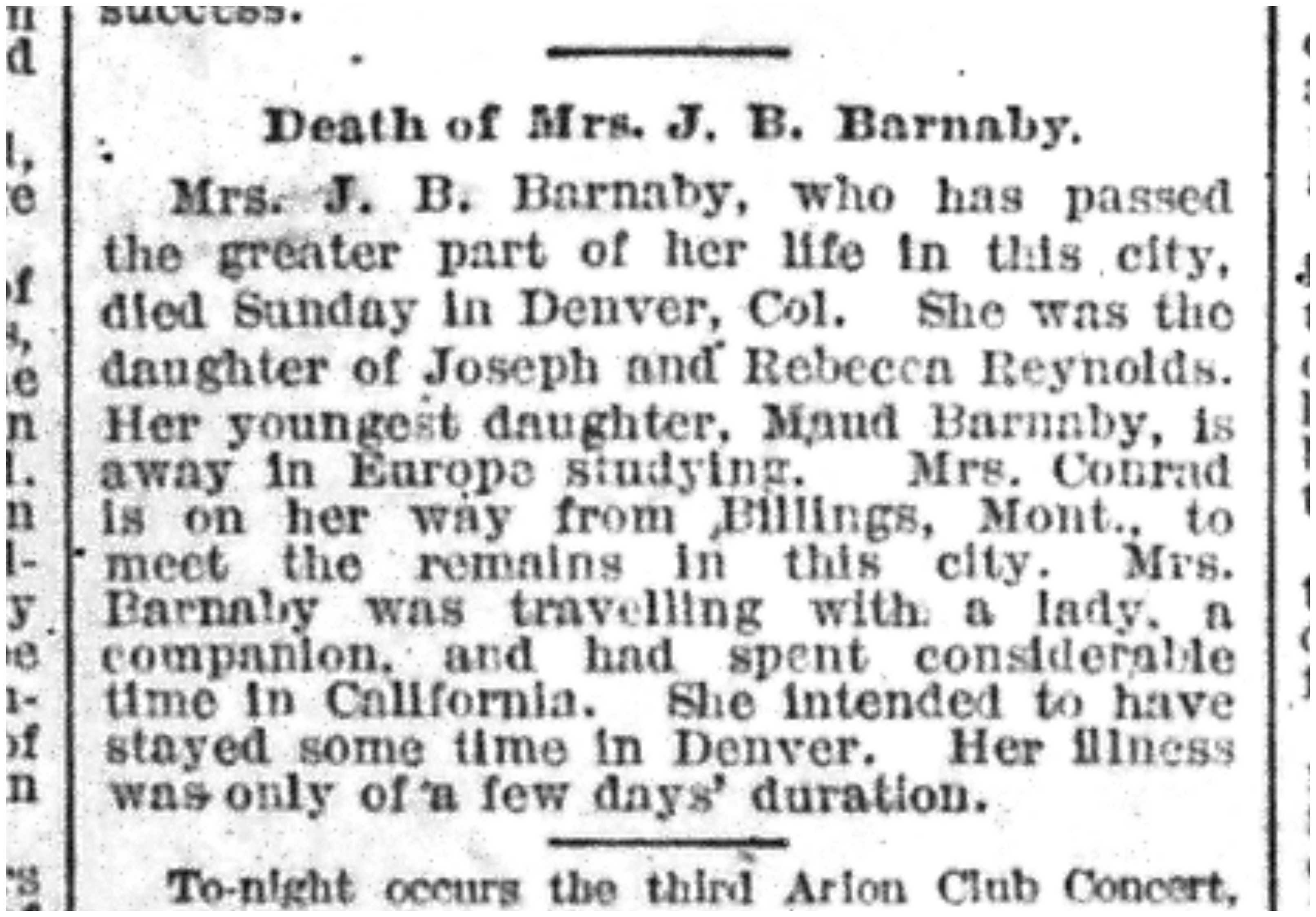
Once it was determined that the whiskey contained deadly amounts of arsenic and that Josephine was indeed a murder victim, a list of potential suspects began to form:
- Dr. T. Thatcher Graves: personal physician to the deceased as well as controller of her finances. He was set to receive $25,000 in her 1st will, which had been reduced to $10,000 in her 2nd. He claims he did not know he was in the will at all.
- Mrs. Emma “Kitty” Graves: long-suffering wife of Dr. Graves.
- Mr. & Mrs. Edward Worrell: friends of the deceased, set to receive $10,000 from the will. Currently having financial trouble, this was seen as a strong motive.
- Mr. & Mrs. Edward Bennett: friends of the deceased, also set to receive $10,000.
- John Howard Conrad: son-in-law. Angry after the lawsuit over Jerothmul’s will, he felt Josephine cost him a lot of money & property.
- Sallie Hanley: recently dismissed personal maid of the deceased. Hired by Dr. Graves to report back to him information on Josephine.
The list was quickly narrowed done to one: Dr. T. Thatcher Graves.
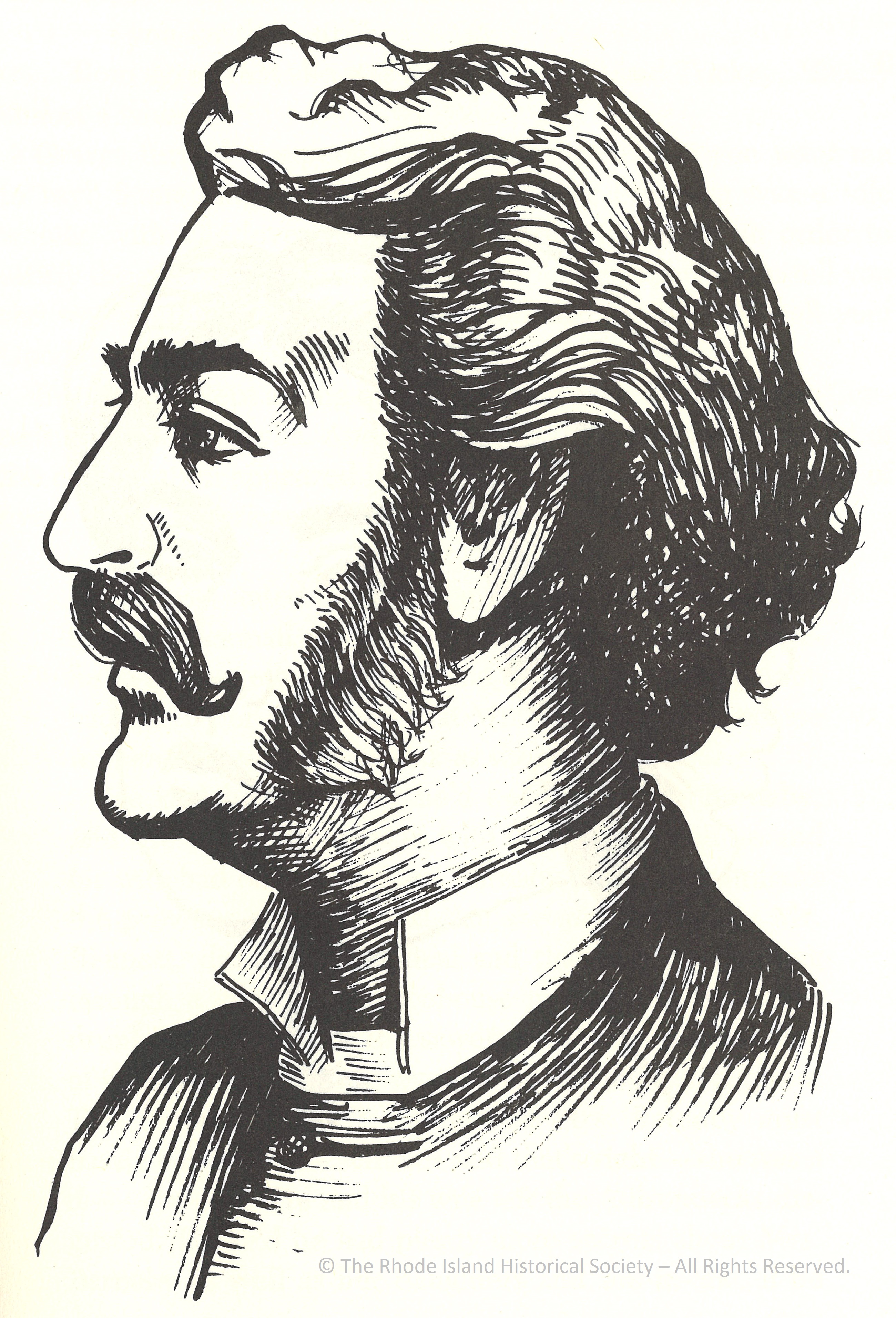
The courtroom was packed on January 11th when Dr. Graves appeared before the judge for sentencing. When asked to stand he again professed his innocence. Judge Rising read the guilty verdict and told him that he would be taken into custody and handed over to the warden at the state penitentiary who would then determine which day, during the week of January 31st, he would be “hanged by the neck until you shall be dead”.
Dr. Graves lawyers entered a plea for an appeal and the legalities dragged on. They eventually got the first verdict dismissed on a technicality and a new trial was promised. All the while, Graves remained in jail.
On September 2, 1893 Graves enjoyed a visit with his wife, who came to see him every day, and when they parted he said, “Good-bye, darling – promise you’ll come back early tomorrow morning!” At nine o’clock the next day he did not report for breakfast and a guard went to check his cell. The doctor was dead. He left several letters. One of which was to the coroner:
Please do not hold any autopsy upon my remains. The cause of death may be rendered as follows: Died from persecution – worn out – exhausted.
No autopsy was performed. No cause of death ever determined. Was he murdered? Was it suicide? Was he really guilty of the murder of Josephine Barnaby? We will never know.
Jennifer L. Galpern, Research Associate/Special Collections
Resources
- The Last Will and Testament of Jerothmul B. Barnaby of Providence, R.I. 1888. (R.I. Biog B 23)
- Bayles, Richard M., ed. History of Providence County, Rhode Island. New York: W.W. Preston & Co., 1891. (F 87 P9 B3 v.1)
- Brown, Arthur W. In Re Molineux Versus a Current Cagliostro. Providence: Snow & Farnham, 1901. (R.I. Auth Brown)
- Conrad, Barnaby. “A Revolting Transaction.” New York: Arbor House, 1983. (HV 6534 D45 C66)
- Day, Martin. Death in the Mail. Providence: The Journal Print, 1892. (HV 6555 U5 G7 c.1)
- Lane, John J., pub. Three of a Kind. Laconia, N.H., 1904. (R.I. Biog B 24)
- In the Supreme Court of the State of Colorado. T. Thatcher Graves, Plaintiff in Error, vs. The People of the State of Colorado, Defendant in Error. Monday, December 4, 1892. Oral Arguments of Henry Marshall Furman and Thomas Macon, for Plaintiff in Error. Judgement of the Supreme Court. [Stenographic Report by J.W. Christy] (KFC 1845.9 G776 1892)
- Providence Journal of Commerce. Vol. 1, No. 1. June, 1893. (HF 1 P8 v.2)

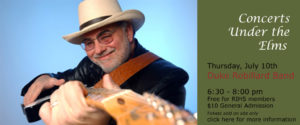
Great article! I read and enjoyed “A Revolting Transaction,” and have taken a couple of tours of the Barnaby Castle. So interesting.
Great article, great writing, thanks.
Hi! Great story. Don’t you think it would be appropriate to credit the patron who found the photo?
What a great story. Please dig up more and share!